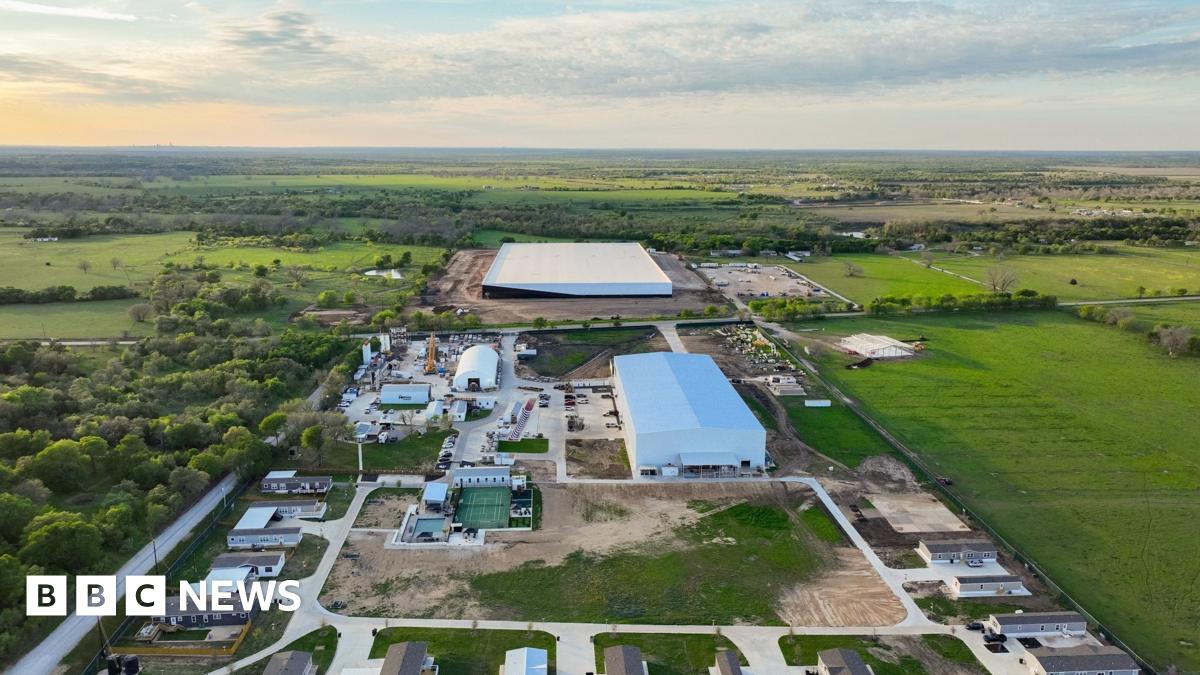Elon Musk's Texas Gigafactory: A Boon for the Lone Star State or a Subsidy Scandal?
Elon Musk's decision to locate Tesla's Gigafactory in Texas has sparked a heated debate. While touted as a triumph for the Lone Star State's economy, the project's reliance on substantial subsidies and its implications for free trade have raised serious questions. This article delves into the complexities surrounding the Gigafactory, examining both its benefits and controversies.
The Allure of Texas: Why Tesla Chose the Lone Star State
Texas offered Tesla several key advantages, enticing the electric vehicle giant to invest billions in the state. These include:
- Lower Taxes: Texas boasts a significantly lower corporate tax rate compared to many other states, a major draw for businesses seeking to minimize their tax burden.
- Less Stringent Regulations: The state's generally less restrictive regulatory environment, particularly concerning labor and environmental regulations, proved attractive to Tesla.
- Skilled Workforce: While not as developed as some other tech hubs, Texas possesses a growing pool of skilled labor capable of meeting Tesla's manufacturing demands.
- Strategic Location: Texas' central location within the US facilitates efficient distribution of Tesla vehicles across the country.
The Subsidy Question: Sweet Deal or Corporate Welfare?
The Gigafactory's construction wasn't without significant public investment. Texas offered Tesla substantial tax breaks, incentives, and other subsidies. While the exact figures remain debated and often kept confidential through non-disclosure agreements, the scale of these incentives is undeniable. This has led to criticism, with some arguing that such generous subsidies amount to corporate welfare, diverting public funds that could be used for other essential services. Critics point to the potential opportunity cost – what other projects could have benefited from these funds?
The counter-argument is that the Gigafactory will generate substantial economic activity, creating jobs, attracting further investment, and boosting the state's overall GDP. Proponents suggest that the long-term benefits outweigh the initial cost of the subsidies.
Free Trade Implications: A Global Perspective
The Gigafactory's operation also has broader implications for free trade. While Tesla sources some components internationally, the factory's primary focus is domestic production and distribution. This raises questions about the balance between promoting domestic manufacturing and fostering open global trade. The debate hinges on whether prioritizing domestic production through subsidies ultimately benefits consumers and the global economy in the long run or if it creates protectionist tendencies that hinder overall economic growth.
The Future of the Texas Gigafactory: A Continuing Story
The story of Tesla's Texas Gigafactory is far from over. Its long-term success will depend on a multitude of factors, including production efficiency, market demand for electric vehicles, and the evolving landscape of government regulations and subsidies. The ongoing debate surrounding the subsidies and their impact on both the Texas economy and broader free trade principles will continue to shape the narrative.
Conclusion: Weighing the Pros and Cons
The Tesla Gigafactory in Texas presents a complex case study in economic development. While it undoubtedly brings jobs and investment to the state, the substantial subsidies involved raise legitimate concerns about fairness and efficiency. The broader implications for free trade remain a point of contention. Ultimately, a balanced assessment requires careful consideration of both the potential benefits and drawbacks of such large-scale industrial projects reliant on public support.
Keywords: Elon Musk, Tesla, Gigafactory, Texas, subsidies, free trade, economic development, corporate welfare, electric vehicles, manufacturing, jobs, investment, tax breaks, incentives.

